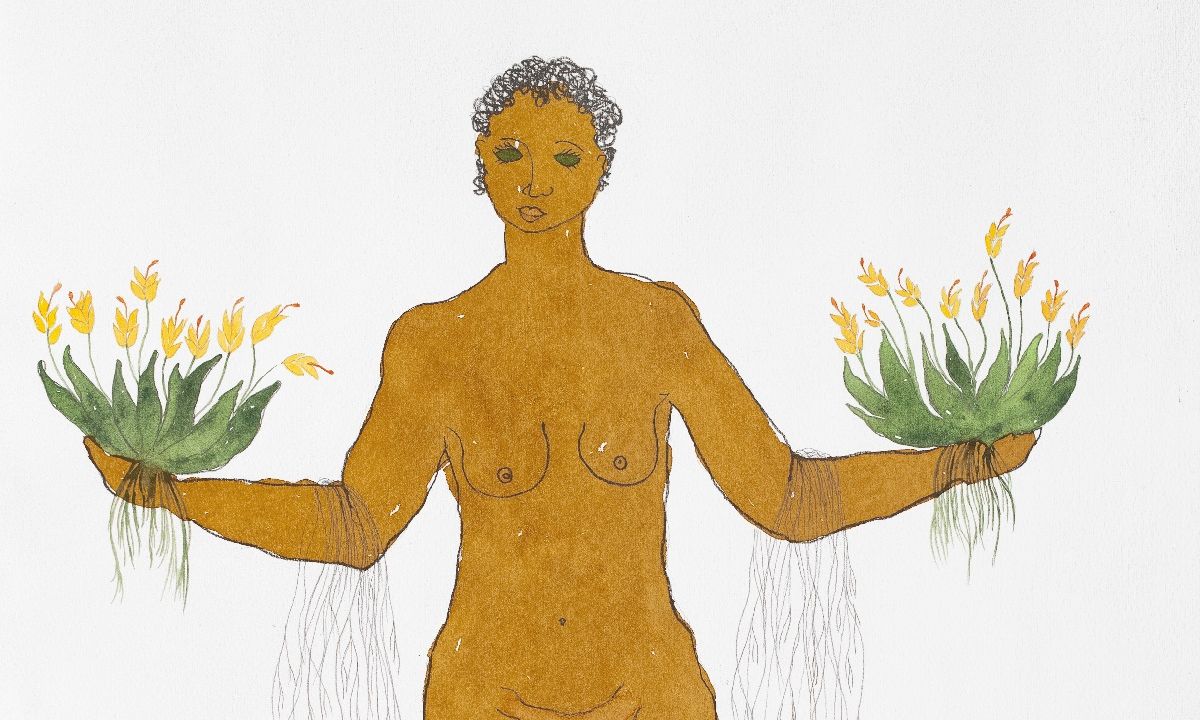A work from Rosana Paulino's Jatobá series (2019). Photo: Bruno Leão. Courtesy of the artist; Mendes Wood DM São Paulo, Brussels, and New York. © Rosana Paulino
The artistic director of the 2022 Venice Biennale, Cecilia Alemani, outlined today at a press conference her curatorial plans for the 59th International Art Exhibition, which opens this spring (23 April-27 November). Alemani revealed that the show, The Milk of Dreams, will include 213 artists from 58 countries with more than 180 artists participating for the first time.
Twenty-six Italian artists will be included while 80 new productions or commissions will be unveiled. Crucially, the exhibition will include a large number of women and “gender non-conforming artists who are challenging the figure of man as centre of the universe”, Alemani said. A room will be devoted to the Portuguese artist Paula Rego; other artists due to participate include Christina Quarles, Carol Rama, Barbara Kruger, Ibrahim El-Salahi, Ali Cherri, Prabhakar Pachpute, Lynn Hershman Leeson, Marguerite Humeau and Rosana Paulino.
Curator Cecilia Alemani. Photo: Andrea Avezzù. Courtesy of La Biennale di Venezia
The title, The Milk of Dreams, is taken from a book of fairy tales written by the Surrealist artist Leonora Carrington. “She started creating drawings of hybrid creatures which featured in a booklet entitled The Milk of Dreams. They tell fantastic stories of hybrid mutant beings… imagining a world in which everybody can change and transform,” Alemani said.
The exhibition will examine three themes: the representation of bodies and their metamorphosis; the relationship between individuals and technology; the relationship between bodies and the earth. Alemani aims to answer questions such as: “How is being human changing? What would life be like without us?”
The Arsenale venue in Venice. Photo: Andrea Avezzù. Courtesy of La Biennale di Venezia
“This complicated relationship with technology has been overturned by the pandemic, when we [came to] realise how our bodies are fragile and mortal. Our relationship with our families and friends became impossible and was mediated through the screen," Alemani said. "Technology on one hand brought us closer but separated us. Post-human—many artists are imagining a future world, imagining the end of the Anthropocene.”
Historic “capsules” will be dotted around the Central Pavilion in the Giardini and Arsenale, the two main exhibition sites, which will be designed by the Italian company FormaFantasma. One of the capsules will include works by 30 artists such as the 20th-century Surrealist Leonor Fini and Gertrud Arndt, a 1930s German photographer. Harlem Renaissance artists will also feature such as Meta Vaux Warrick Fuller.
Another capsule, entitled the Technology of Enchantment will include a number of works by 1960s Italian artists, along with pieces by Lillian Schwartz and Agnes Denes. Another pod is entitled The Seduction of a Cyborg, which "relates to a post-human future featuring Futurist and Dada works”, said Alemani. This capsule will include works by the US sculptor Anna Coleman Ladd, Marianne Brandt and Alexandra Exter.
The Victoria and Albert Museum will again present a project at the Biennale; the work is being developed by the Qatari-American artist Sophia Al-Maria and focuses on one of the museum's most famous artefacts, Tippoo’s Tiger (1782-99) which was made for Tipu Sultan, the ruler of Mysore in South India.

